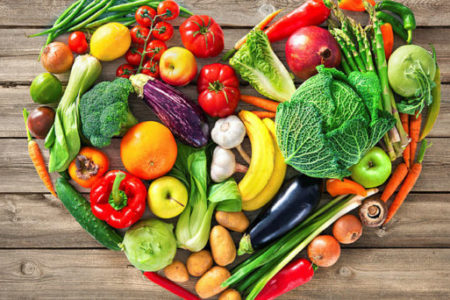BE HEALTHY OUTDOORS -- Part 1
Now that it’s summer with such intense sunshine this year, many of us are taking advantage of the weather & are outside as much as possible. Whether it’s walking in the woods, mountain biking, road riding, golfing, fishing, swimming or tennis, it’s better to prevent common problems and be ready for incidents as they occur. Hopefully, this should give you some useful tips for staying healthy and comfortable.
- Preventatively
· Protect yourself against skin damage by increasing your sources of beta-carotene in your diet. You can increase this by eating more green leafy veggies such as kale, swiss chard, arugula, beet tops, cilantro and parsley or by increasing orange, yellow, or red veggies like carrots, beets, squash and those yummy roasted red peppers in your diet. Otherwise, to prevent burning consider a beta-carotene supplement. These all act as anti-oxidants that pick up free radicals that are produced when exposed to UV radiation and remove them from the body, thus, preventing your skin from burning or damage. Similar to beta-carotene is Vitamin A that I use in liquid form.
· Vitamin E, Vitamin C and other bioflavinoidsare also anti-oxidants that act like a sunscreen. Vitamin E is high in fish such as salmon, tuna, herring, sardine and halibut, as well as almonds & all seeds. Vitamin C & other bioflavinoids are contained in any brightly coloured fruit such as cherries, berries, apricots, peaches or plums. These can also be supplemented. It is essential to have natural forms and Vitamin C needs to be a neutral source, in other words, not citrus based. If you use a citrus based Vit C it will make you acidic, which will decrease the body’s ability to get rid of inflammation and metabolites such as lactic acid.
· Eyesare also susceptible to sun damage, which can cause lens damage over time. Consider wearing properly UV protected sunglasses when in the direct sun. Also, a neutrally sourced Vitamin C helps to make collagen, which repairs and maintains the lens.
· It is also important to have a certain amount of sunlight in the retina to help set our levels of hormones like melatonin and serotonin. Therefore, refrain from wearing sunglasses part of the time so some natural light enters the eye. It’s good to get at least 20 minutes outside everyday and the best time of day is during the early morning/late afternoon/evening when there is less intensity from the sun.
· Try to mix one-sided sports like golf and tennis with activities that re-balance the muscles and alignment of the body like walking, hiking, swimming, biking and yoga.
· Regular stretching and a variety of activities prevent any muscle group to be strained. It’s good to rotate biking with running for instance.
· Always carry sufficient food for the intended activity. Try NOT to depend on quick replacements like sugar syrups. LOOK AT THE LABEL—If it has malto-dextrin, dextrose, sucrose, maltose, fructose, galactose, all of these are basically refined and artificial sugars that the body doesn’t recognize. Of course they will give you quick energy, but, because they are refined, this puts a load on the liver and pancreas, and over time can cause blood sugar problems. Also, AVOID COW WHEY for protein, it will cause inflammation, which is the opposite of what you want in your joints and muscles!
I usually bring nuts and seeds, such as raw almonds, cashews, sunflower or pumpkin seeds with some dried fruit, such as organic prunes, figs or dates. This gives you a great source of absorbable protein, slow sustaining, anti-inflammatory oils and slow releasing carbohydrates. Therefore, it’s best to eat a combination of real foods. That should be quite sufficient for a 3-4 hour sustained activity.
Stop and have food, since eating while exercising typically results in digestive problems, muscle cramps or blood sugar issues. You can keep pushing, but, our bodies were not designed to be doing both activities at once!!!
If your activity lasts over 4 hours, you may need to use high protein bars such as the “Organic Food Bar” or bars with high amounts of seeds or nut/seed butters and some type of protein such as hemp, almond, soy or pumpkin seed powder. I stay away from soy protein unless it is organic, due to the genetic modification and chemicals. These keep your blood sugar stable and give the body enough calories until you return. However, don’t rely on these for your activity, use only if necessary.
· Also, carry enough water. Remember to drink ½ your weight in ounces/day. So, if you are 140 lb. you should be drinking 70 ounces of water/day or about 7 glasses. For every hour of exercise, you need another glass of water. Try to hydrate well before you go out. I always drink at least 3 cups of herbal tea in the morning to maximize fluid in the cells.
In this heat, I will often take 1 bottle of water and 1 bottle with a scoop of natural electrolyte mix. These keep the balance of calcium, magnesium, sodium and potassium which we lose sweating, as well as giving you a slower releasing carbohydrate sugar source, like date sugar, agave or coconut sugar. You can purchase this at a health food store.
Please continually sip water to stay hydrated—don’t wait until you feel faint, nauseated and have chills and fever, a sure sign of heat stroke and dehydration!
· Be prepared for changes of weatherwith proper clothing layers. Take a wide brimmed sun hat and wear a light, white long sleeved shirt and a light, loose pair of pants to minimize sunscreen.
· Consider a bandanaaround your neck that you can dip in streams or lakes that will help cool the blood going to the head.
· Take breaksin your activity to cool down, sip water and if possible, put your head in cool streams or lakes to bring your core and blood temperature down.
This should give you the strategies you need to enjoy being outside and having fun.
The next article (Part 2) will offer you help for some of those unpleasant little incidents that can happen in the summer.
For those who need more specific strategies, especially if you are trying to train in this weather, consider an appointment with Dr. Brenda Gill at 250-362-5035.
























